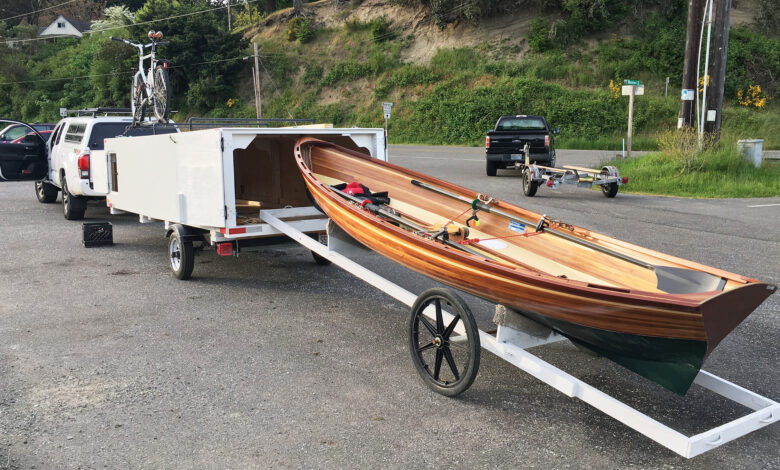Transporting Your Boats: The Ultimate Guide to Choosing the Right Rowing Trailer

Whether you’re a rowing club manager, a coach, or an enthusiast of the sport, transporting your boats safely and efficiently is paramount. With the various options available in the market, selecting a rowing trailer that meets your needs can be a daunting task. In this guide, we aim to provide you with comprehensive insights into the critical factors to consider when looking for a rowing trailer that ensures the utmost protection and convenience for your vessels.
Understanding the Essentials of Rowing Boat Trailers
The foremost step in selecting the right trailer is to understand the specific requirements of rowing boats. These vessels are not only long and slender but also relatively delicate, requiring proper support and protection during transit. An ideal trailer should cater to these dimensions and offer robust security against road vibrations and potential impacts.
Assessing Capacity and Size
Consider the number of boats you need to transport. Rowing trailers come in various sizes and capacities, allowing for the transport of single boats or multiple shells. It is crucial to choose a size that accommodates your fleet without compromising on safety margins. Overloading a trailer or squeezing boats too tightly can result in damage during transit.
Material and Construction
The material of the trailer is another vital consideration. Most rowing trailers are constructed from steel or aluminium. Steel trailers are generally more sturdy and cost-effective, though they are heavier and prone to rust. Aluminium trailers, on the other hand, are lighter and resistant to corrosion but can be more expensive. The quality of construction will not only influence the longevity of the trailer but also the safety of your boats.
Customisation and Flexibility
Each rowing team has its unique set of requirements based on the types of boats and transportation needs. A trailer that offers customisable rack options or modular configurations provides the flexibility to accommodate different boat lengths and types, making it a valuable long-term investment.
Towing Vehicle Compatibility
Your towing vehicle’s capabilities will directly affect your choice of trailer. It is essential to ensure that the vehicle’s towing capacity meets or exceeds the weight of the fully loaded trailer. Insufficient towing power can lead to hazardous driving conditions and undue strain on the towing vehicle.
Security Features
Security is two-fold: the security of the boats on the trailer and the security of the trailer itself. Ensure the trailer has reliable strapping or locking mechanisms to hold the boats in place. In addition, a trailer with built-in locks or compatibility with security devices will protect against theft.
Roadworthiness and Suspension
An often-overlooked feature is the trailer’s suspension. A quality suspension system minimises the impact of bumps and potholes on the boats. Furthermore, guaranteeing that the trailer is roadworthy, including efficient brakes and lighting systems, is a legal requirement that also provides peace of mind.
Convenience Features
Features that enhance convenience, such as easy loading and unloading mechanisms, can significantly reduce the time and effort needed to transport rowing boats. These features become increasingly valuable when attending events or regattas where quick setup and pack-down times are advantageous.
Manufacturer and Brand Reputation
It pays to invest in a rowing trailer from a reputable manufacturer. Consider brands with good track records for reliability and customer service. Feedback from fellow rowers and coaches can be instrumental in this regard, as they provide unbiased reviews based on practical experience.
Cost and Budget Considerations
The cost of a rowing trailer can be a substantial investment. However, selecting a trailer based solely on price can be shortsighted. Consider the long-term value and potential savings from reduced maintenance and repair costs when choosing a higher-quality trailer.
Legal Compliance and Warranty
Before making a purchase, ensure that the trailer adheres to relevant transport laws and regulations. Additionally, consider the warranty offered by the manufacturer. A solid warranty policy reflects the manufacturer’s confidence in their product and offers protection against defects.
Environmental Factors
Environmental conditions such as coastal air, humidity, or extreme temperature variations should influence the type of trailer you select. Trailers with anti-corrosive finishes or designed for specific climates can extend the lifespan of both the trailer and the boats it carries.
After Sales Service
The availability and quality of after-sales service are essential. Choose a supplier who offers comprehensive support, spare parts, and servicing options. This will ensure any issues can be addressed quickly, keeping your trailer in service and your boats on the water.
Conclusion
Choosing the correct rowing trailer is a critical decision that impacts the safety of your boats and the efficiency of your operations. By taking into account capacity, material, customisation, and towing compatibility, along with security, suspension, convenience, manufacturer reputation, cost, compliance, environmental factors, and after-sales service, you can make an informed choice that aligns with your specific needs. Investing in the right trailer will facilitate safer, easier transport for your rowing boats, contributing to the success and longevity of your rowing endeavours.





